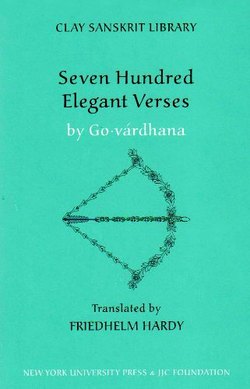Читать книгу Seven Hundred Elegant Verses - Govardhana - Страница 12
На сайте Литреса книга снята с продажи.
ОглавлениеWe know a little something of Go·vardhana’s time and place. He was a member of a celebrated group of poets which included the great Sanskrit religious lyricist Jaya·deva, author of the “Gita·govinda: Love Songs of Radha and Krishna” (Gitagovindakavya),1 and the “messenger” poet Dhoyi, author of the “Wind Messenger” (Pavanaduta),2 who wrote at the court of Lakshmana·sena of Bengal at the end of the twelfth century. He also tells us something of his family in his introductory poem. But what we really care about is the poet himself, or rather, what the poet himself cared about: his poetry.
Fundamentally, Go·vardhana explores human relation- ships, particularly between the sexes, and on this basis also enters the realm of the gods and religion. His is a vision of universal love (which to him almost always means passion), with its messy, irrational, and fleeting vicissitudes. Even by Indian cultural standards, he can be outrageous, shocking, and subversive, revealing a remarkable degree of ironic (or other) distance from nominally hallowed tradition. To us, who have been conditioned to extract the “religious” from Indian culture and to discard as “irrelevant” the realities of ordinary human life, this will be most disconcerting. But he can also be very funny, perceptive, sympathetic, and moving, with a wonderful eye and ear for fine detail and nuance. Above all, he is immensely imaginative. He is conscious of this: what he has created contains “the essence of the three worlds” (v. 699). But this “essence” is not that of a philosopher or theologian, no grand theory: it is wonder-struck contemplation of passion pulsating in the cosmos.
